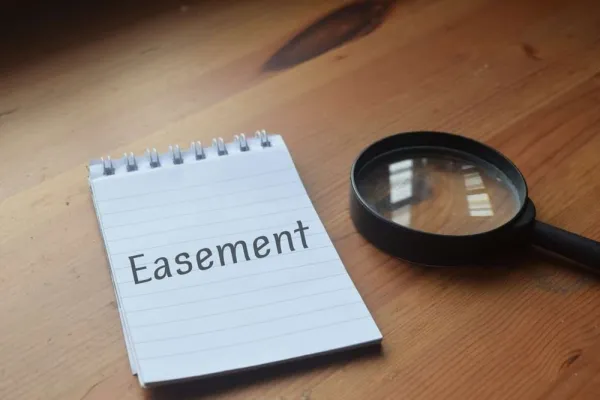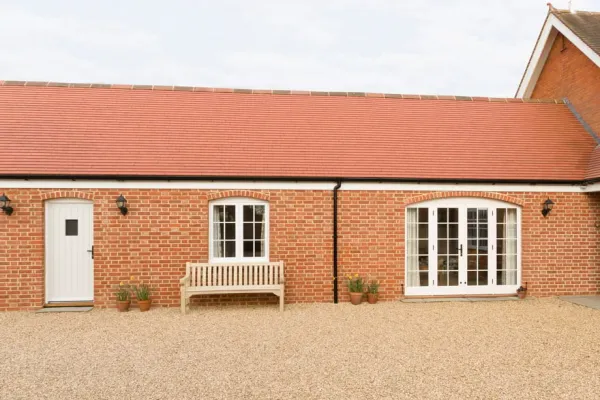Whether you’re buying or selling a home, you will likely come across the phrase ‘guide price’.
It’s commonly used in the UK property industry.
In this blog, we’ve explained what guide price means and how you can optimise it.
What is a guide price?
A guide price is usually the minimum value a homeowner wants to receive for their property.
It gives potential buyers an indication of the owner’s mindset.
The assumption is that if they can’t meet this number, they shouldn’t offer.
Reasons a homeowner will set a guide price
1. Estate agent advises them to
An estate agent will sometimes advise homeowners to set a guide price.
They often suggest prices aimed at striking a balance between gaining homeowners a reasonable price and attracting enough viewings.
The ideal goal is to start a bidding war. It may also be useful if the valuation has a margin of error.
2. Selling prices in the area are inconsistent
The housing market isn’t always stable and consistent. In many cases, you’ll find that the prices jump around.
This is often because of market conditions or changes in the local area.
For example, perhaps there’s a controversial infrastructure development under consideration.
Or there are rumours that a highly rated nearby school is declining. Economic fluctuations are common, too.
These can all make it challenging to pinpoint selling price to an exact number.
3. The owner and estate agent have different opinions
It’s not uncommon for a homeowner and estate agent to disagree about the value of a house.
In many cases, the property owner may feel that the estate agent is undervaluing their house. Whether that’s the case is a separate issue.
A guide price can help these two people find a ‘middle ground’ between their different opinions. This compromise ensures that both views are respected.
4. Guide price vs. asking price
Guide prices and asking prices are not the same thing.
A guide price indicates the minimum amount a homeowner will accept. On the other hand, an asking price is what the owner is hopeful of getting.
Property owners often sell a house for less than the asking price – but rarely for less than the guide price.
Should I offer below a guide price?
Potential buyers can make an offer below the guide price.
But it’s best to accompany it with an explanation. And be prepared that the owner may be insulted if you offer too far below the guide.
Sometimes, a lower offer may be the best price they’ve received.
If they’re keen to sell fast, you could encounter a homeowner who’s willing to compromise.
In other situations, the owner may be deeply insulted if you go one penny below their guide.
This can end negotiations on day one. It is worth asking the estate agent their opinion on what the seller will accept.
How is a guide price worked out?
Like with all property listings, there are several influences on guide price.
A homeowner and estate agent will consider all these factors.
Economic conditions
If you’re a homeowner, you must pay attention to the housing market when your property is listed.
Higher interest rates make mortgages more expensive, affecting buyers’ spending power.
Activity in the market also moves up and down. If there are fewer buyers in the area, this reduces your negotiating power.
Location
Every location has a unique local market. And some places are far more desirable than others.
You can sometimes afford to push your price up into the millions if you’re based in Central London or an attractive part of Cornwall.
But in other locations, you’ll need to drop your price to reflect the typical prices in the area.
Property condition, size and appearance
There are many different kinds of properties.
Generally, the larger your property, the higher you can set your guide price.
Make sure you consider whether any ‘centre piece’ items are included in the sale.
This can move your guide price by several thousand in either direction.
Recent selling prices for similar properties
You can research selling prices for similar properties near you.
These should have the same number of bedrooms and an equivalent square footage. This guides you on what houses are selling for.
You can thus decide a number below which a deal would be ‘unacceptable’.
How do I know if the property I want is listed with a guide price?
You will see a property’s price listed anywhere that it’s advertised.
So, if you come across the house on Rightmove or in a local magazine, it should have a number next to it. If it’s a guide price, it will be stated explicitly.
In an auction situation, you will see a guide price as an amount set within 10% of the reserve price.
Alternatively, you could see the price set as a minimum and maximum range where the guide price sits in between.
How do mortgage valuations affect guide price?
When buying a house, you want to be sure you are getting the best possible value.
A mortgage valuation will be carried out when you show interest in the property on behalf of the lender.
They will assess how much the property is worth and thus how much you can borrow.
Buying this property could be difficult if this amount equates to much lower than what the seller has in mind.
However, if the guide price and the mortgage valuation are similar, then you can proceed and possibly attempt to negotiate a lower price.
Can guide price be trusted?
In most cases, a guide price is set with the market in mind and will be as close to an actual representative value of properties in the area as you can expect.
In some cases, it isn’t and that is why you should always do plenty of research before making any offers.
















